|
At the start of October, we were glad to be joined by Senior Leaders, Curriculum Leaders and other colleagues for our Autumn Curriculum Forum led by national and regional expert curriculum speakers. The termly Curriculum Forums are designed to explore models and approaches to curriculum design, including the implications of Cognitive Science, and how to prioritise curriculum knowledge and content. The Forums also consider equality, diversity and inclusion and explore how leaders can ensure these values are enshrined across curriculum development, and consider the implementation for inspection and beyond. Part A | Keynotes “The most fundamental reason to choose curiosity isn’t so that we can do better at school or at work. The true beauty of learning stuff, including apparently useless stuff, is that it takes us out of ourselves, reminds us that we are part of a far greater project, one that has been underway for at least as long as human beings have been talking to each other. Other animals don’t share or store their knowledge like we do.” (“Curious: The Desire to Know and Why your Future Depends on it,” Ian Leslie).  "Principles of Meaningful Curriculum Development" | Kat Howard With evident enthusiasm for all things curriculum, Kat Howard opened this launch event with her keynote on “Principles of Meaningful Curriculum Development,” looking at how to align subject and school curriculum and shared her experience and expertise with some invaluable takeaways. Director of a large MAT Teaching School Hub, with experience as a school senior leader, Kat is author of the bestselling “Stop Talking About Wellbeing: a Pragmatic Approach to Teacher Workload” and is also co-author of “Symbiosis: the Curriculum and the Classroom.” An in-house Expert Adviser for the Teacher Development Trust, Kat writes curriculum content for the Reformed NPQ Leadership Suite. Curriculum development is a fundamental aspect of school life and is linked to teacher workload and retention and is one of the reasons teachers often state for leaving their post due to the disconnect and discontentment from wasted time on what they perceive to be fleeting initiatives. Hence the value of ensuring best intentions in crafting a curriculum do not go to waste. Often cited by teachers as the top two bests of teaching are: 1. Talking to students and 2. Teaching their subject. Kat encouraged leaders to empower Subject Leaders to design the curriculum as she believes they are best placed to make decisions about the curriculum and, of course, all subjects are different. Curriculum conversations are a must as curriculum implementation can be a fragile process. Interrogate the problems of the curriculum, explore and prepare the monitoring and evaluation as an ongoing process. Think objectively. Learn to critique. Is your curriculum fit for purpose for your school and students? Even if this means stepping away from an agreed national standpoint. A vital starting point is to create a shared language for the curriculum. Consider whether students can access the information and move to the next stage within the subject curriculum as a granular process. Be more informed by the substance of the teaching and be aware that oracy has an important part to play. Ensure a sense of balance and share as much as possible. Mitigate where misconceptions are more prevalent. Ask the right questions and interrogate the problem in the first place. In understanding the common barriers to curriculum development, leaders need to consider a shared purpose and make peace with the fact that working with children changes every year. Considering professional fulfilment in the process rather than the outcome can make a difference. Curriculum development can be the tension of balancing autonomy whilst contributing to a collective purpose. Prepare teachers in the design and development of the curriculum and work collaboratively together in an atmosphere of support, trust and feedback to improve student outcomes. Ensure everyone feels like a subject expert to teach the curriculum. So, what does your successful curriculum look like? Agree a theory of action process before any changes to the curriculum are made as a dialogical (= the use of conversation or shared dialogue to explore the meaning of something). Be tangible in the way the curriculum is discussed in identifying the problems. Look for evidence through conversations with staff and students. Ask deliberately provocative questions. How does it challenge students’ thinking so they can go out into the world and question for themselves? In sustaining curriculum development, it is essential to keep teachers at the heart and consider: What do we teach? Why do we teach it? Does it look as we imagined? What can we do to build on what’s working? Above all, do not compromise on the curriculum. Kat encouraged leaders to devote three days at the end of the Summer Term as protected time for curriculum discussions. We thank Kat for her energising talk and her guidance and encouragement in developing a meaningful curriculum. Follow Kat on Twitter at @saymiss and read her blogs at www.saymiss.wordpress.com 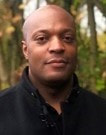 "Approaches to Decolonising Curriculum Knowledge" | Marlon Moncrieffe School leaders and educators understand the significance of equality and diversity in the curriculum, but this awareness was undoubtedly brought into public prominence and perception by the 2020 Black Lives Matter international protests. Next keynote speaker, Dr Marlon Moncrieffe led on this agenda with his talk on “Approaches to Decolonising Curriculum Knowledge” in how policy relates to theory and practice. Principal Lecturer at the School of Education at the University of Brighton, Marlon is the Knowledge Exchange Leader and Chair of the Research Ethics and Integrity Committee. His academic research work and expertise focuses on decolonising primary school curriculum knowledge with the aim of enabling and advancing critical consciousness in teaching and learning. Formerly a primary school Assistant Headteacher, Head of Maths, English and also Physical Education, Marlon is a Fellow of the Chartered College of Teaching and Council Member of the British Educational Research Association. As part of his research, Marlon engaged with the UK Parliament and House of Commons Education Committee to share his work; and through the Chartered College of Teaching, he has created resources that champion inclusive and equitable approaches to education, teaching and learning and to guide teachers in how to have confident conversations in the classroom. A child of the Windrush generation, Marlon reported how his research into centring the “Black” British voice in teaching and learning has found that nothing much has changed in the History curriculum from a UK perspective. The colonial time-warp persists with the past recurring in the present: from the slave rebellions across the Caribbean up to the Black Lives Matter antiracism protests in the 21st Century. It is a false justification of the hierarchical power of one racial group to be given more privileges in society. Macpherson’s recommendations in response to the murder of black British teenager Stephen Lawrence called for the decolonisation of curriculum knowledge and antiracist education to combat institutional racism. However, the National Curriculum has not changed in response to Macpherson’s recommendations. Teaching and Learning of British History has come under sharper scrutiny with calls for changes to the Conservative National Curriculum History getting louder and over a quarter of a million people signed a public petition calling for cultural diversity with Marlon working alongside other academics to share their findings. However, in response, the Government maintained that the Gove Education Curriculum Policy was “broad, balanced and flexible.” Yet Marlon showed how this denies the dominance of the one-dimensional Anglocentric and Eurocentric (= whites only) historical starting points throughout the statutory National Curriculum content, e.g. “Britain’s settlement by Anglo-Saxons and Scots” and “the Vikings and Anglo-Saxon struggle for the Kingdom of England.” Multicultural Britain = diversity in white and black. A curriculum should be broad or else it risks being narcissistic and, in this case, the British Government become the History-makers of identity. A hegemonic (= ruling or dominant in a political or social context) curriculum creates narratives for teachers to deliver. But it is important to be critically conscious. Time can bring about change in political consciousness and this can be challenged for relevance for the now and the future. Too often, Marlon found that when teachers are asked what British History in the curriculum means to them, they simply restate the National Curriculum content and their own existing knowledge, e.g. the Tudors, World War I and II. In other words, Anglocentric History as a cultural preproduction. Hence the value of a critical historical consciousness in the curriculum and as teachers, to take note when drawing up Schemes of Work to challenge policy and reform. We thank Marlon for his thought-provoking presentation and the reminder that it is good to challenge our sense of history across the British Isles. Follow Marlon on Twitter at @DrMoncrieffe Part B | Workshops  Part B of the Curriculum Forum was opportunity for delegates to choose from a range of phase-specific workshops. Amy Le Bredonchel | Primary | Curriculum Design: Knowing, Thinking and Communicating. Based on the principles of a Trivium approach, this workshop presented the principles behind a linked curriculum that ensures progression, retrieval and opportunities and showed how the questions ‘Why this? Why now?’ have been addressed, underpinned by the aim that remembering more, is knowing more. Ruhaina Alford | Primary | Whose Culture has Capital? Approaches to diversifying your curriculum to prepare children to be global citizens. Exploring the rationale behind why we should be doing this work; this workshop explored practical examples in various curriculum areas as to how we can reframe how we teach. Re-examining how certain subjects are taught through a western or colonial lens, and re-framing. Tom Graham | Secondary | Prioritising the curriculum at a whole-school level. This workshop explored how a focus on curriculum at whole-school level has helped to drive a deeper understanding of curriculum by all teachers and explored the structures to train teachers and quality assure the curriculum within a secondary school setting. Holly Pennington | Early Years | Language Led Learning – closing the word gap in the Early Years. This workshop looked at how this language-led spiral curriculum is implemented over an academic year, and the impact on children’s transition into Reception and beyond. Toni Smyth | Primary | Supporting primary schools to transform P.E. experiences for EVERY child, teacher and family. Given ambitious P.E. curriculums have the potential to transform experiences for every child, this workshop explored the intent and how schools can use the P.E. Premium for solutions that support teachers to implement effectively P.E., and have the greatest impact on the children in their care. Matt Pennington | Primary | How can Cognitive Science Drive Greater Outcomes for Early Readers? This workshop explained the intent of designing an early reading curriculum centred on Cognitive Science and looked at the implementation and how the cognitive science is embedded in long, medium and short-term planning and the significant impact it is making on the lowest 20% of pupils through quality first teaching. Annabel Skelton | Secondary | 'Book Club': The Jewel in the English Curriculum Crown. Book Club is an hour a week for all Key Stage 3 students, and is dedicated to the reading and academic discussion of a challenging text that complements learning within the curriculum. Using reciprocal reading strategies: summarising, clarifying, predicting and questioning, it explains how students are encouraged to see themselves as literary critics: building background knowledge, developing vocabulary and improving reading fluency. Harriet Marshall | Crossphase | A curriculum that prepares for life, learning and work through the UN’s Sustainable Development Goals. The UN’s Sustainable Development Goals (SDGs or Global Goals) are an ambitious framework for not only a better world, but also for a relevant and empowering school curriculum. This workshop looked at why a growing number of schools are developing their curriculum by linking to the 17 SDGs. Anthony Lees | Approaches to Formative Assessment in Primary Computing. This workshop considered and exemplified a range of formative, low stakes assessment mechanisms for instant feedback for teachers and learners through the lens of Primary Computing and considered how Computer Science concepts, such as sequence, repetition and condition can be reviewed with a range of digital tools and become embedded in the learning cycle for teachers and pupils. We thank and are grateful to all our contributors for sharing their curriculum experience and expertise, and providing considered sessions for our Curriculum Forum. Watch out on our social media channels for details of the Spring Term Curriculum Forum. Report by Jude Owens, PA to the SWIFT Executive Team
0 Comments
Your comment will be posted after it is approved.
Leave a Reply. |
SWIFT News
|
SPONSORED BY
Join us, be a part of our SWIFT community |
© COPYRIGHT 2022 SOUTH WEST INSTITUTE FOR TEACHING SWIFT. ALL RIGHTS RESERVED | Website by brightblueC
VIEW OUR PRIVACY NOTICES | VIEW OUR COURSE T&CS
VIEW OUR PRIVACY NOTICES | VIEW OUR COURSE T&CS


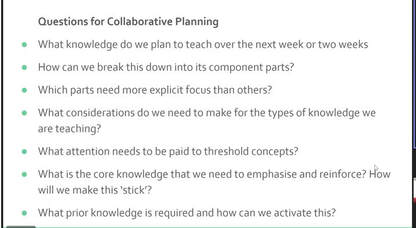
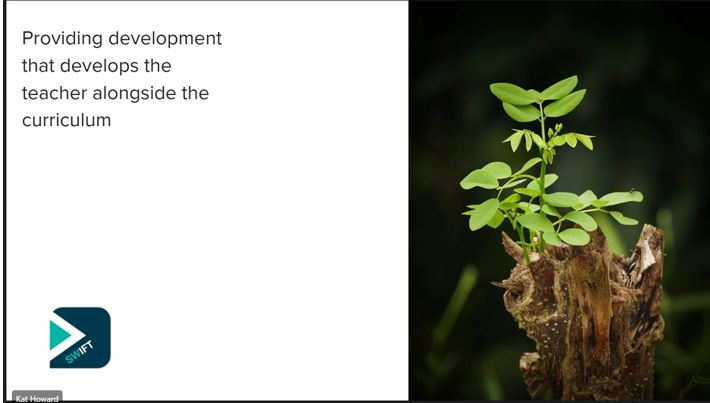
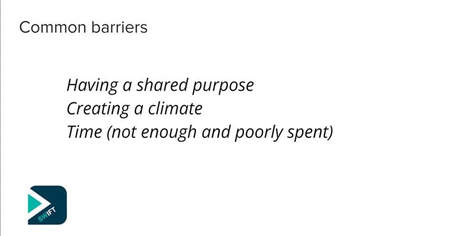
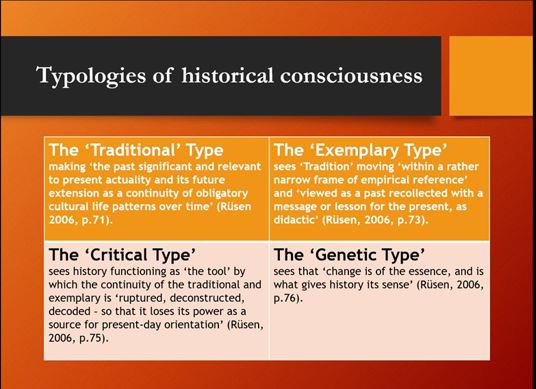
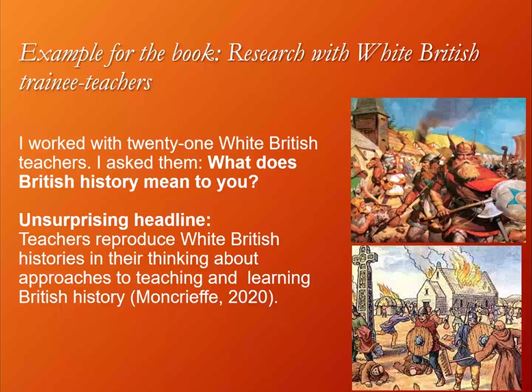
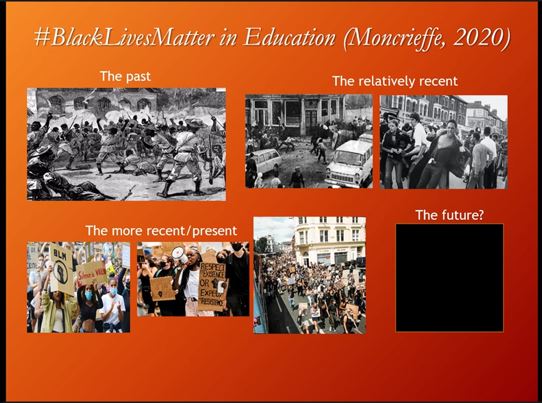
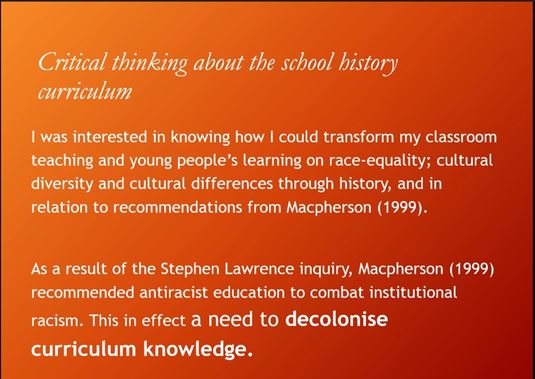
 RSS Feed
RSS Feed





